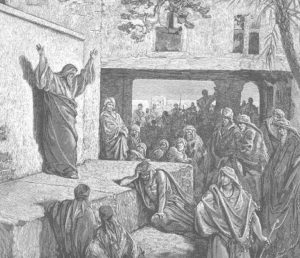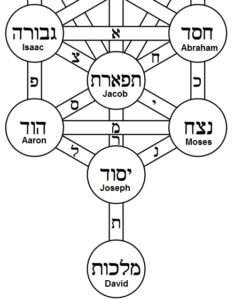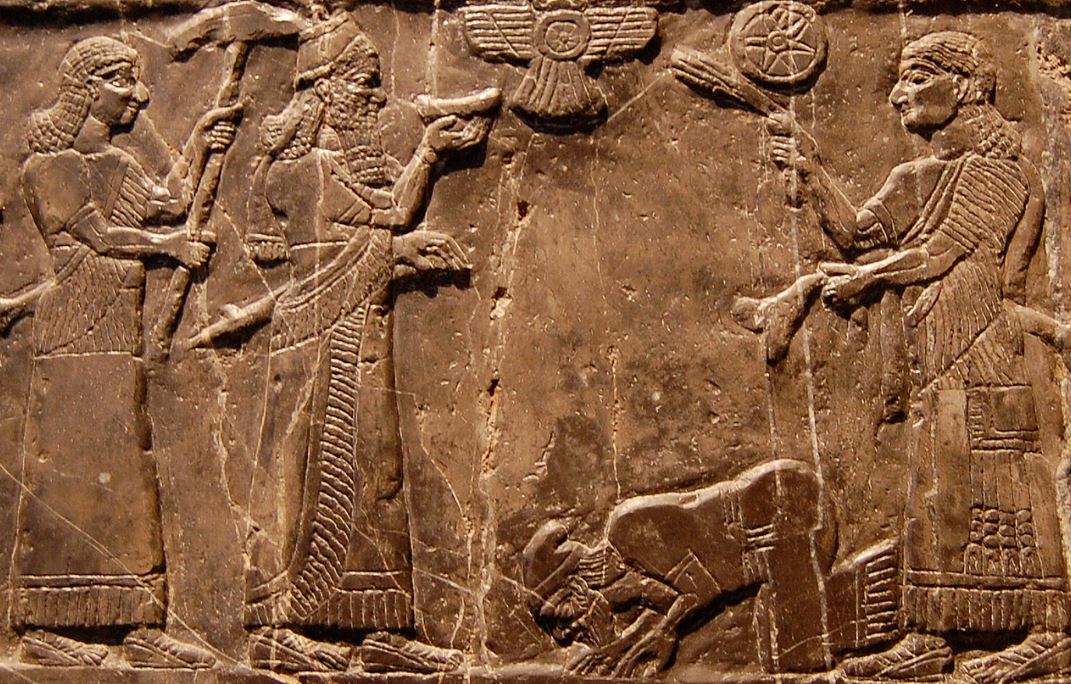BS”D Parashat Shabbat-Sukkot 5784
by Rabbi Nachman Kahana | Sep 28, 2023
The Sukkah as a parable for the Diaspora - it's only temporary
If you try to live in it after the holiday, a sukkah will collapse.
Yamim Noraim & Sukkot
In the bet knesset on the first day of Rosh Hashanah, I sat next to the well-known Dov Landau – the embodiment of all the essential events of this period in our history.
At the age of 15, he was taken to the Auschwitz extermination camp on the first day of Rosh Hashanah – exactly 83 years ago. From there he was transferred to a series of labor camps, where he was forced to work in coal mines and other hard labor until his release in 1945 from the Buchenwald camp in Germany. He immediately became active in the “illegal immigration” of Jews to the Land of Israel under the nose of the brutish-British, until he was caught and sent to a camp in Cyprus. When he finally arrived in “Palestine,” he joined the Haganah and fought in Gush Etzion against Egyptian and Jordanian forces until the Gush fell and he was held prisoner by Jordan for over a year.
In short, Mr. Landau is a living history book. What is most incredible is that, despite the horrors at every step in his life, he maintained his Judaism by observing mitzvot.
For many years, he led groups to Poland’s killing fields, which were very familiar to him. Today, Mr. Landau is the head of a close-knit family of sons and daughters, grandchildren and great grandchildren – all of whom are faithful to the Torah of HaShem.
Rosh Hashanah is the Day of Judgment, when HaShem surveys all mankind and determines their fate for the next year – as stated in the liturgical hymn U’Netaneh Tokef Kedushat Hayom:
“Who will live and who will die; in his time and who before; who by water and who by fire… but repentance, prayer and charity can annul the evil decree!”
As I was listening with great intent to Mr. Landau’s story, I thought about him 83 years ago when he was 15 years old and being taken to an extermination camp as compared to where I was at two years old growing up in placid America. There were 18 million Jews in the world at that time; but when I entered first grade at the age of six, only 12 million Jews remained. The number 18 million has yet to be restored.
Among the murdered were a million and a half children. They paid with their lives for being part of HaShem’s chosen people, while I was living a happy life in New York. Why?
Conclusion: Just as it is beyond human understanding to explain how and why we were destined to experience the unfathomable atrocities of the Holocaust, it is also impossible to explain the miracle of the establishment of the State of Israel a mere three years after the end of the war. Even more incredible is why the reborn State did not die at birth when, literally the day after our independence was declared, five standing Arab armies led by British officers invaded.
And the continuation of the military and economic miracles is awesome, particularly when there are more than seven million Jews living in the land of our ancestors with the planning of many more millions.
After two days with Mr. Landau, I considered how I would rate loyalty to the religion of Israel and to the people of Israel – who at the head and who at the bottom.
I do not judge any particular person. That is exclusively the authority of the God of Israel who knows the thoughts of men. However, I do rate behaviors. A doctor is qualified to define whether a wound is mild, moderate, severe, or fatal without referring to the character of the injured person. So, too, a rabbi whose wisdom and life experience qualifies him to rate human behavior in terms of Judaism.
With that in mind, I propose that at the top of the pyramid of Judaism of three thousand years – from Abraham our father until the declaration of the State of Israel – stands the survivors of the Holocaust, and of all the other days of darkness in the various exiles. They remained loyal to the Creator who chose the people of Israel.
The bottom two places on the pyramid are shared by the following Jews:
- Those who believe and fulfill their commitments but let their instincts and desires get the better of them in certain matters such as having to smoke on Shabbat.
- Those who reject Judaism and religious observance, by declaring “I’m not religious…”
Those who declare, “I am not religious.”
With this declaration they convince themselves that because of their intelligence, advanced academic degrees and unwavering anti-religious position, they will be exempt from all responsibility towards the Creator of the world and the Torah of Israel and will not stand trial after death in the world containing Gan Eden and Gehennom.
With a wave of their hands, their rejection of responsibility to Judaism – “I’m not religious” – they are saying in fact that the many millions of Jews over more than three thousand years were primitive and were living in a delusional dream.
It is beneath them to believe in “fables” such as Egyptian slavery, the sea splitting to allow millions of people to cross over on dry land and the sea immediately closing up to drown all of the pursuing Egyptian soldiers, receiving the Torah on Mount Sinai, these same millions being sustained with a daily dose of manna from heaven for forty years in the desert and with water pouring forth from a rock.
By rejecting their Jewishness, they think they are freed from the oath they swore before birth and from giving an after-death account of their actions on earth.
It is similar to young recruits who have sworn loyalty to the IDF, but when the orders don’t appeal to them, they announce to the commanding officer “We no longer recognize military authority over us”. At the trial for disobeying orders, they are sentenced to one month in jail, but for denying the authority of military law they are sentenced to life imprisonment.
A story about “I’m not religious”:
One morning I made my way to the bet knesset at the time when people take their dogs out to do their thing. I noticed a man who appeared to be a little more intelligent and greeted him with an offer, that, if he agrees, I would take him to the synagogue to pray. He politely rejected my offer saying, “I’m not religious”, and we parted in peace.
I stood there reflecting on the fact that while I was about to prostrate myself before the omnipotent Creator to beg for the welfare of my family, and for the peace of the city of Jerusalem, and the peace of the inhabitants of the Holy Land and of world Jewry, that seemingly intelligent man was involved with his dog.
I was holding in my hand tefillin which would be placed near my heart and on my head, while this man was holding a plastic bag with the dog’s droppings that its master – in a commendably civil act – lifted off the sidewalk.
Where does his rejection of Torah bring him, and where does my allegiance to Torah bring me?
What can I do?
At this season, our Father in Heaven presents us with the remarkable gifts of Rosh Hashanah and Yom Kippur. These days of awe open for us a gate to return to the heart of Judaism, as the Rambam says in the Laws of Repentance, Chapter 7, Halacha 6:
“Great is repentance that brings a person closer to the Shekinah (the holy spirit of HaShem in this world) … Repentance brings closer those who are far away, last night he was (harsh language) … and today he is beloved, close and a friend…”
It is stated in the sources that, at the end of this difficult historical period, all the people of Israel will repent when they observe the miracles that our heavenly Father will do. Then all the questions will be answered, and all the perplexities will become clear, and peace and truth will dwell together.
I am saddened by the thought that those who throw away their Judaism have little chance of achieving teshuvah. What can I do other than try to explain and shed tears for them – some of whom I know personally and like?
Sukkot – An Allegory
Reb Yisrael and his sons erected their sukkah adjacent to the kitchen door of their palatial home in one of the Five Towns, as they had done for many years in the past.
But this year was different. Reb Yisrael had just learned from his rabbi that one of the reasons for residing temporarily in a sukkah is in case one’s destiny was decided on Rosh HaShanah to be expulsion into galut, the departure from the comforts of home into the sukkah could be considered to be that galut.
Reb Yisrael, his wife, and children left the warm comforts of their beautiful home and entered the sukkah with the knowledge that, by taking up temporary residence therein, they would be absolved of any galut-related sins.
As the family continued to reside in the sukkah, they got so used to the pleasant smell of the schach (branches used to roof the sukkah) and the pretty pictures on the walls and the overhanging decorations, that they decided to remain there even after the chag! Even though they were able to peer into their permanent home with its luxurious amenities, electrical gadgets, and state-of-the-art under-floor heating units, thick hanging drapes, lush carpets and much more, they showed no interest in returning there.
As odd as it may seem, the family became accustomed to the crowded, cold interior of the sukkah. Their relatives and neighbors tried to point out the irrationality of what they were doing, but the very idea that this was galut did little to encourage the family to return home.
When their rabbi came to visit, it was surprising that he encouraged them to remain in the sukkah rather than to return home, because it was in the sukkah that the family felt comfortable and closely knit.
In the meantime, several strangers noticed that the previously brightly lit home was vacant, and they decided to move in as if it was indeed their own!
Reb Yisrael and his wife and children saw the strangers living in the house; but in veneration for the sukkah, they stubbornly bonded with the thin walls and dried-out schach and refused to leave.
The whole thing was so absurd. To leave such a beautiful home for the feeble, fallible construction of the sukkah, despite the fact that their beautiful home was beckoning them to return was beyond the understanding of any rational person.
Then came the stones thrown by the local anti-Semites who wanted to rid the neighborhood of this sukkah eyesore. Reb Yisrael and his family dodged them one by one and steadfastly remained in their fragile dwelling, rationalizing these acts as irrelevant nuisances.
Then came the terrible night when one-third of the sukkah was torched by the local bullies.
Reb Yisrael and his family were aware of what was happening, but their minds had become so warped that no amount of reasoning could move them. To them the sukkah was home and their home was galut.
Eventually the sukkah came crashing down, killing Reb Yisrael and his entire family in their beloved galut!
Shabbat Shalom and a very happy and meaningful Sukkot,
Nachman Kahana
Copyright © 5784/2023 Nachman Kahana



